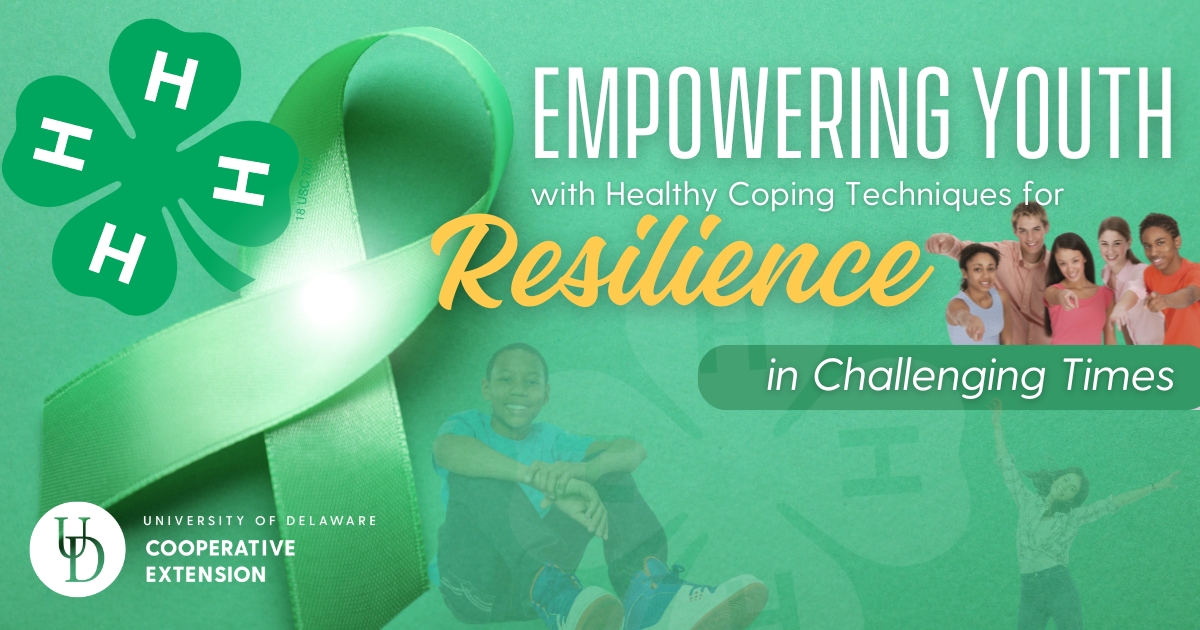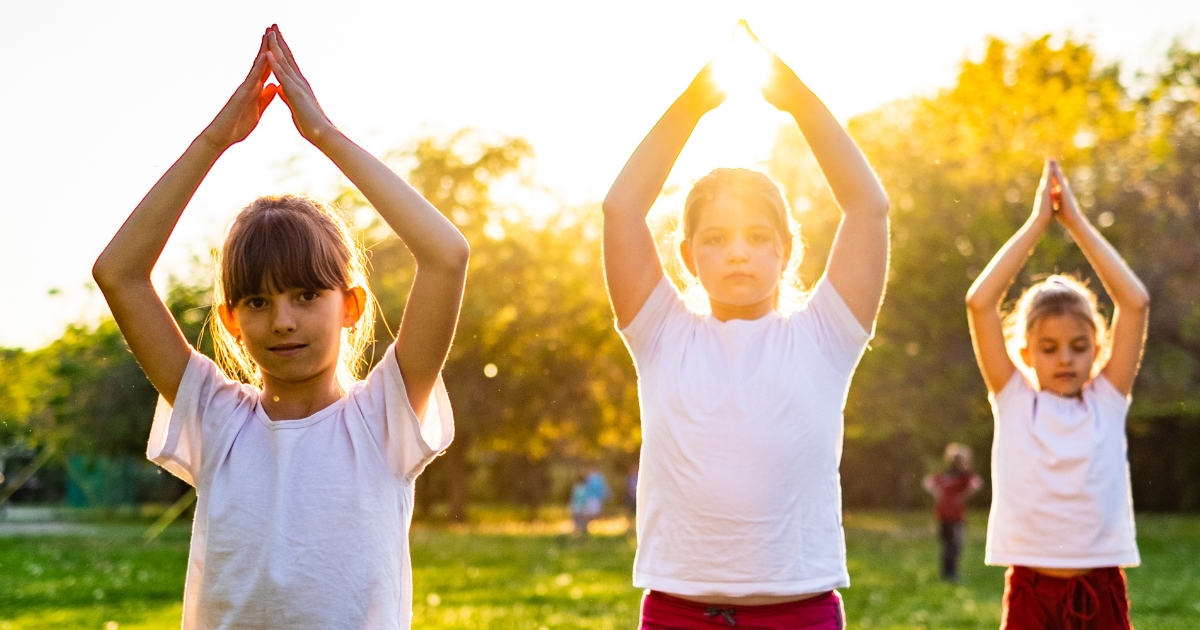
Category: Cooperative Extension

Empowering Youth with Healthy Coping Techniques for Resilience in Challenging Times
May 03, 2024 Written by Kim Silva, Extension Agent - Prevention Education, Delaware 4-H
As the prevalence of mental health disorders among our youth continues to rise, it's likely that many of us have come across numerous articles discussing the data. However, amid this influx of information, has it left you wondering about tangible practical steps you can take? Perhaps you're seeking specific strategies or interventions that can make a difference in the lives of young people before and during times when facing challenges. Let's explore some options.
Strategies for Children
Here are strategies tailored specifically for children between the ages of 5-11.
1. Mindfulness and Relaxation Techniques:
Practice "mindful moments" before meals, where everyone takes a few deep breaths and shares something they're grateful for.
Use storytelling or guided imagery to lead children through relaxation exercises before bedtime.
Incorporate simple yoga poses or stretches into their daily routine, using colorful and playful visuals or videos.

2. Regular Physical Activity:
Organize regular outdoor playdates with friends, incorporating activities like tag, hide-and-seek, or obstacle courses.
Encourage participation in age-appropriate sports such as soccer, swimming lessons, or gymnastics classes.
Dance to your favorite songs or follow along with fun exercise videos designed for kids.
3. Healthy Lifestyle Choices:
Involve children in meal planning and preparation, allowing them to choose healthy snacks and help with simple cooking tasks.
Create a bedtime routine that includes calming activities like reading together or taking a warm bath.
Emphasize the importance of drinking water throughout the day by providing colorful, reusable water bottles with fun designs.
4. Open Communication:
Establish a regular "family meeting" time where everyone can share their thoughts, feelings, and concerns in a safe and supportive environment.
Use storytelling or role-playing to teach children about emotions and how to express them in healthy ways.
Foster empathy and understanding by encouraging children to talk about how they think others might be feeling in different situations.
5. Limit Screen Time and Social Media Use:
Set clear boundaries around screen time, such as designating specific times of day when screens are allowed and establishing screen-free zones in the house.
Encourage alternative activities like building with blocks, drawing, or playing board games that stimulate creativity and imagination.
Model healthy screen habits by limiting your own screen time and engaging in offline activities together as a family.
Youths Aged 12-18
Here are some specific ideas for each strategy tailored to youths aged 12-18:
1. Mindfulness and Relaxation Techniques:
Start the day with a short mindfulness or breathing exercise before school.
Use apps like Headspace or Calm for guided meditation sessions.
Set aside time before bed for relaxation techniques to improve sleep quality.
2. Regular Physical Activity:
Join a sports team at school or in the community.
Take regular walks or bike rides with friends or family.
Attend fitness classes like yoga, Pilates, or dance.
Participate in outdoor activities such as hiking, swimming, or rock climbing.
3. Healthy Lifestyle Choices:
Plan and prepare nutritious meals together as a family.
Encourage drinking plenty of water throughout the day.
Establish a consistent bedtime routine to ensure adequate sleep.
Limit caffeine intake, especially in the afternoon and evening.

4. Open Communication:
Schedule regular check-ins with a trusted adult, whether it's a parent, teacher, or school counselor.
Keep a journal to express thoughts and feelings.
Organize or attend peer support groups where participants can share experiences and offer each other encouragement.
Explore online forums or communities focused on mental health awareness and support.
5. Limit Screen Time and Social Media Use:
Set specific time limits for using social media and stick to them.
Designate screen-free zones or times during the day, such as during meals or before bed.
Encourage offline activities like playing board games, crafting, or exploring nature.
Use social media mindfully by following accounts that promote positivity and inspiration while unfollowing those that cause stress or negative feelings.

Finally, lead by example and prioritize your own mental health and well-being. Children learn by observing the behavior of adults around them, so modeling healthy coping strategies, positive communication, and self-care practices sets a powerful example for children to follow. By prioritizing your own mental health, you demonstrate the importance of self-care and resilience, inspiring children to do the same.
